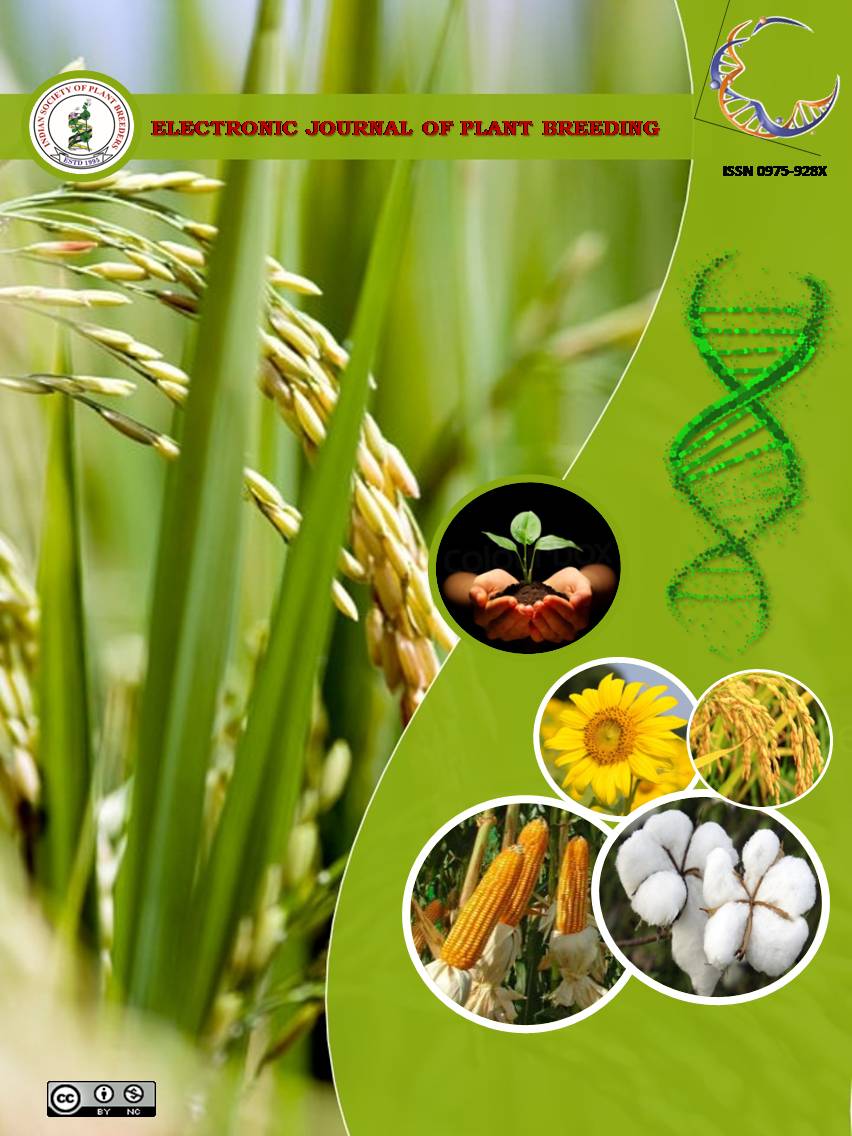Stability analysis for seed yield and yield component traits in ajwain (Trachyspermum ammi L.)
Abstract
Genetic improvement toward optimized and stable agronomic performance of ajwain genotypes is desirable for food security. Understanding how genotypes perform in different environmental conditions helps breeders develop sustainable cultivars adapted to target regions. Complex traits of importance are known to be controlled by a large number of genomic regions with small effects whose magnitude and direction are modulated by environmental factors. Knowledge of the constraints and undesirable effects resulting from genotype by environmental interactions is a key objective in improving selection procedures in ajwain breeding programs. The mean squares due to genotypes x environment G x E (L) interactions were also significant for all the characters except day to 50% flowering and days to 75% maturity, plant height and test weight . The genotypes UA-63 was superior in per se performance and stability for seed yield seed yield suggesting its suitability for inclusion in future breeding programme for development of stable variety. The genotype UA-48 found suitable for high yielding environments, while genotypes, UA-66, UA-7, UA-83, UA-29, UA-70, UA-71, Local check, UA-41, UA-28, UA-30, UA-90, UA-1, UA-32, UA-87 and GA-1were best in poor environments for seed yield.

It is certified that:
- The corresponding author is fully responsible for any disputes arising due to the publication of his/her manuscript.
- The article has been seen by all the authors who are satisfied with its form and content.
- The sequence of names of authors in the by-line is as per their relative contribution to this experiment, giving due credit to all scientists who made notable contribution to it.
- All the authors fully understand that inclusion of any other co-authors or exclusion of any co-authors is not possible once the article has been submitted to the journal.
- The corresponding author takes full responsibility for this article.
- The address of the organization where the research was conducted is given.
- The article is exclusive for this journal, and the results reported here have not been sent (and will not be sent during its consideration by this journal) for publication in any other journal.
- Authors agree to abide by the objective comments of referees and do agree to modify the article into a short note as per the recommendation, for publication in the Electronic Journal of Plant Breeding.
- If published in Electronic Journal of Plant Breeding, the copyright of this article would vest with the Indian Society of Plant Breeders, who will have the right to enter into any agreement with any organization in India or abroad engaged in reprography, photocopying, storage and dissemination of information contained in it, and neither we nor our legal heirs will have any claims on royalty.


